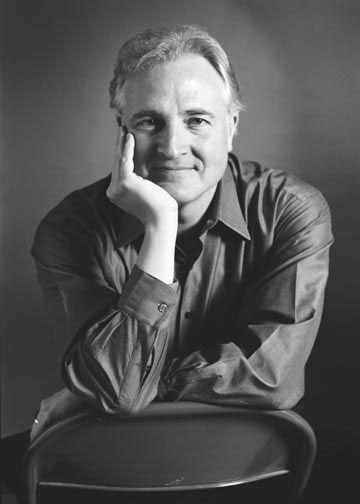Moravec’s stunning “Blizzard Voices” receives powerful premiere from BMOP

Paul Moravec’s “Blizzard Voices” received its Boston premiere Thursday night from the Boston Modern Orchestra Project.
Disastrous winters live long in historical memory. For example, there is the blizzard that hit the Great Plains in January of 1888, which caught many who lived in the Midwestern territories unawares. Known as the Children’s Blizzard, the storm trapped students and teachers in their one-room schoolhouses where they remained for days. Many who ventured out into the storm succumbed to frostbite. Others froze to death. In conservative estimates, several hundred people died.
The events of that fateful storm are memorialized in Paul Moravec’s stunning oratorio Blizzard Voices, which Gil Rose and the Boston Modern Orchestra Project performed Thursday night at Jordan Hall in its Boston premiere.
The libretto, based on survivors’ accounts compiled by poet Ted Kooser, tells a hellish tale of death: a boy, Billy, died wrapped in a blanket next to his brother while stuck in a snow drift; twelve-year-old Peter Poggensee, nine-year-old Otto Rosberg, and his six-year-old sister Hattie all died huddled next to their teacher, who survived; and the corpse of a man, caught in a barbed wire fence, was found buried in an icy crypt of densely packed snow.
Moravec’s darkly tonal music captured these stories in powerful dramatic detail in this expansive, 70-minute work. The Prologue was haunting in its bare orchestral textures and wordless chorus. The blizzard scene was terrifying, the music a dense swirl of thick, thorny dissonances. Some of the writing involved colorful effects, such as bubbling orchestral rhythms and the chatter of the chorus to symbolize a telegraph machine. Other sections glowed with intensity. “Light the fire,” Moravec’s setting of a traditional verse on the death of children, rang with poignant sorrow.
The performance featured excellent singing from the New England Conservatory Concert Choir, under the direction of Erica J. Washburn. The singers’ diction was clear and their blend full and symphonic to match the music’s edge-of-the-seat drama.
Joining them was a solid cast of soloists. Soprano Emily Pulley sang with a full, dexterous voice that sparkled in its full range. She effectively captured the familiar warmth of a mother looking after her children in “All Night the Wind Moaned.” Deborah Selig sang with a light, nimble soprano in the song of Minnie Freeman. Erica Brookhyser’s mezzo-soprano had a fluffy, velvety quality, which added palpable weight to “I Never See a Sunflower.”
Baritone David Kravitz conveyed the story of “Billy” with a penetrating tone and a powerful sense of the dark story. David Cushing brought his deep, resonant bass to the lines of “The Searching Parties.” And tenor Matthew DiBattista rendered his phrases in “The Blizzard Bore Down” with clarion tone and conviction.
Thursday evening’s concert also featured two additional works, John Harbison’s Concerto for Bass Viol and the first public performance of Stephanie Ann Boyd’s Ondine, winner of the BMOP/ New England Conservatory composition competition.
Filled with nervous energy, Harbison’s work is a fine addition to the short but growing list of double bass concertos. The first movement opened with a choir of three basses, yet as the music progressed, soloist Edwin Barker assumed center stage. The Boston Symphony Orchestra principal bassist was in fine command of the squirrelly runs that passed between his bass and the BMOP woodwinds, and his tone was round and song-like in the lamentation that followed.
The second movement took Barker into the extreme ranges of his instrument, but it was here that weaknesses began to show. Barker’s harmonics frequently drifted in and out of tune and his flute-like tone thinned to an almost anemic sound. The angular, jazzy riffs of the third movement fared better. With deliberate gestures, Rose conjured fine playing from the orchestra, the musicians laying a sturdy frame of accompaniment.
Boyd’s Ondine, which opened the concert, refers to a siren-like maiden from Gaelic mythology that lures men into the sea to drown in the murky depths.
The composer, a master’s student at the New England Conservatory, makes gorgeous use of the orchestra in a manner that recalls Debussy’s La Mer. The deftly scored music flows in gentle waves, and at any one moment it glistens with smears of string harmonies, velvety flute sonorities, gentle whiffs of clarinet melody, and the round, rosy tone of the brass. Rose led the orchestra in an insightful reading that made a strong case for Boyd’s work.
Posted in Performances